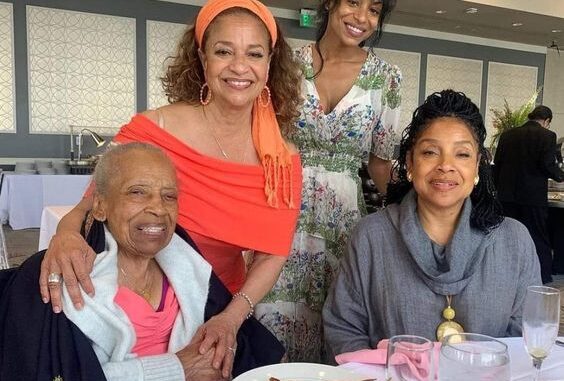
Self-Actualization Through The Eyes Of Phylicia Rashad

Phylicia Rashad is a renowned African-American actress and Tony Award-Winner for Best Actress as Lena Younger in the play, A Raisin in the Sun. Rashad is best known as mother and attorney Clair Huxtable on NBC sitcom The Cosby Show (Biography). It was during these years of her career that she became a notable breast plate to the world as a pioneer for colored women in Hollywood. She was born Phylicia Ayers-Allen on June 19, 1948, in Houston, Texas (Phylicia Rashad Biography). During her early childhood her parents decided to move their family to New Mexico to escape the trenches of racism that were steeply deep in Texas. She attended Howard University in the late 1960s and later served as a Drama Professor.
Rashad continues to challenge the blemished image of African Americans through her expressions of heritage in acting and producing projects that focus on the progressive lifestyle of blacks in America. She continues to endorse the “successful black family” mantra as the reality because families in her childhood community depicted this image so effortlessly. Like The Cosby Show, she witnessed real African American families that had a doctor and lawyer in the same house. In 2010 she performed in the romantic comedy Just Wright and the mental-illness tale Frankie & Alice. She also made an appearance in the ensemble drama For Colored Girls, which was produced by the great Tyler Perry. This was an adaptation of Ntozake Shange’s 1975 theatre piece For Colored Girls Who Have Considered Suicide/When the Rainbow Is Enuf. She has recently returned to series TV in 2013. She also portrayed the widow of boxer Rocky Balboa’s friend Apollo Creed in the Rocky (1976) sequel Creed (2015) (Moredock, 2016). Phylicia has truly portrayed the characteristics of an individual who has self-actualized because of her sense of creativity through theatre and drama, her ability to use her life stories to assist others in their search for purpose and her position in preserving the importance of knowing herself over the thoughts that others may have of her.
In an interview with Dr. Roscoe C. Brown Jr., Mrs. Rashad spoke deeply about her acThicomplishments in theatre and drama. She explained how this was her dream since she was eleven years old (African American Legends: “Who Am I”, 2011). This dream was facilitated by her mother who did poetry and taught Phylicia and her siblings the importance of being creative. Through theatre, Rashad has produced some really great works. She attributes most of her success not only to her parents, but to the connections she made with professors at Howard and other great actors during her collegiate years. She stressed the importance of doing the ground work so that you are well developed when it is time to showcase your talents. Throughout her collegiate endeavor she was honored with privileges that other African Americans only dreamt of during this time. Her sense of creativity and passion for the work she does proves that she has reached Maslow’s Stage of Self-Actualization.
According to Maslow, the stage of Self-Actualization is the need for personal growth and discovery that is present throughout a person’s life (McLeod, 2007). Phylicia has not only fulfilled this portion of self-actualization, but has also proven that she has the ability to be creative. Her spirit of creative has appealed to the masses. She even creates pieces of art describing the stories of her past that have contributed to who she is today. One of my favorite was her discovery of racism not being real. She believes that it is a construct that humanity fooled its self into believing. She concluded this at the young age of 9 when she decided to drink from the WHITES ONLY water fountain. She did this to simply see what the difference was between the WHITES ONLY and BLACKS ONLY fountains. She found that there was no difference thus revealing the deceptiveness behind racism (African American Legends: “Who Am I”, 2011). Phylicia’s ability to utilize the stories of her past illustrates the thorough examination of her meaning and purpose in life.
